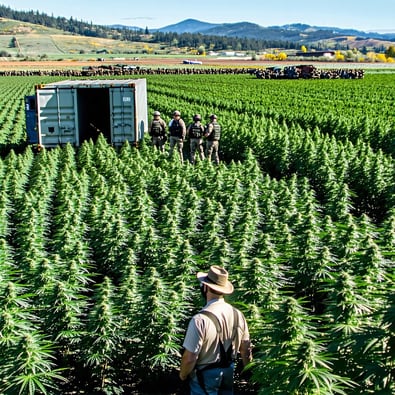During a recent Senate hearing, Senator Thom Tillis voiced serious concerns about the ongoing involvement of drug cartels in the marijuana trade and
the lack of cohesive regulation across state and tribal lines. Speaking on behalf of the chair, Tillis highlighted the need for federal oversight and raised pointed questions about illegal grow operations, product transport, and the broader implications for public safety.
Tillis began by acknowledging the shifting legal landscape, noting that the majority of U.S. states have legalized marijuana in some form. While he expressed no strong personal stance on legalization, he emphasized his concern about inadequate regulation and how that has created new opportunities for criminal enterprises. Specifically, he warned that cartels are adapting by integrating illegal inputs into legal supply chains in cannabis-legal states.
DEA officials confirmed that cartels remain deeply involved in the cannabis trade, not just on the streets but through illicit operations feeding into state-regulated markets. Tillis cited cases of large-scale illegal grow sites — including one in Los Angeles involving 800 acres and 47 undocumented Chinese nationals believed to be victims of human trafficking.
Turning to North Carolina, Tillis questioned how marijuana grown on land outside the boundaries of the Eastern Band of Cherokee Indians could be legally processed and sold through the tribe’s dispensaries.
Tillis also voiced frustration with cannabis products marketed with names like "Tutti Frutti," suggesting they may appeal to minors. He referenced concerns from tribal leadership that youth are increasingly testing positive for marijuana use, urging more accountability and regulation to prevent underage access.
In closing, Senator Tillis stressed the urgency of federal action. He called for the creation of a regulatory framework, potentially under the USDA and FDA, similar to how alcohol and tobacco are managed. Without such measures, he warned, the U.S. risks losing control over product safety, especially as illicit producers race to increase potency — a move that could have deadly consequences.
Tillis’s remarks underscore a growing bipartisan recognition in Congress: as marijuana legalization advances, so must the federal response to ensure public safety, fair regulation, and a crackdown on criminal exploitation.





